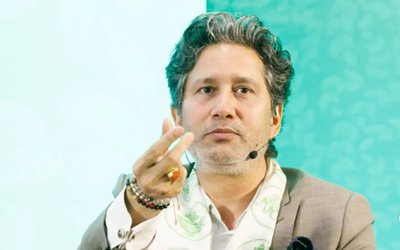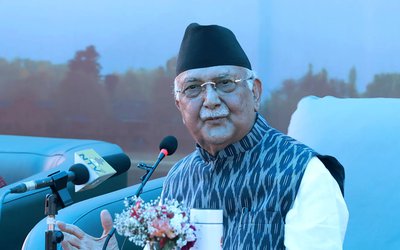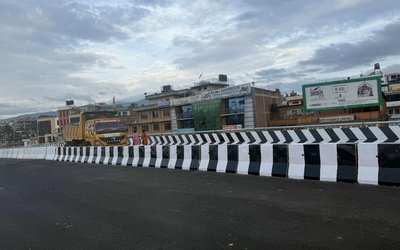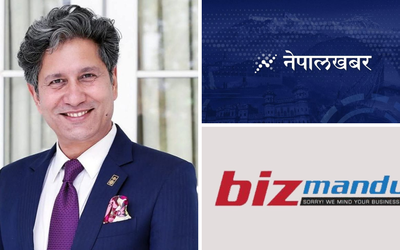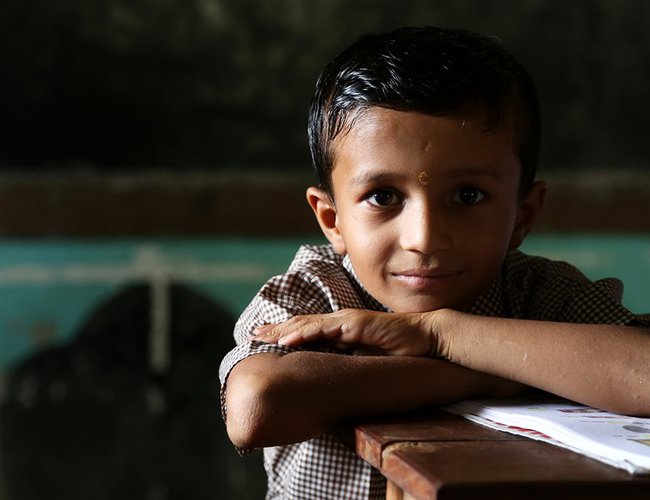
Policymakers, experts, academics, and think tanks from South Asia came together at the South Asian Association for Regional Cooperation (SAARC) Secretariat in Kathmandu today to discuss protecting children and families from the extensive precarity brought on by climate disasters, economic shocks and the lingering effects of the COVID-19 pandemic.
The event was organized by UNICEF South Asia in partnership with the SAARC. Bharat Raj Paudyal, Foreign Secretary of Nepal; Martin Raiser, Vice President for South Asia at the World Bank; and Dr. Pem Kandel from the International Centre for Integrated Mountain Development (ICIMOD) attended the event as special guests.
“The evidence shows us that the most vulnerable children and families in South Asia have been hit the hardest by the effects of COVID-19, climate change, rising food prices and inflation,” said Esala Ruwan Weerakoon, SAARC Secretary General. “The decisions and investments we make will determine the resilience of our region in tackling future shocks.”
South Asia is home to 628 million children – the highest child population in the world – and is also an epicentre for climate disasters. In 2022 alone, climate-induced floods left over 15 million boys and girls in South Asia in need of assistance. Meanwhile, economic downturn sparked by the COVID-19 pandemic and fuelled by rising inflation, conflicts and mounting country debts, has had a disproportionate impact on children and families.
“It is equally true that children suffer silently from the ramification of global scale challenges. Such challenges can take many forms, including economic disarray, social upheaval and political tensions which restrict access to resources, healthcare and education that are essential for children's development. Ultimately, they perpetuate cycles of poverty and inequality for future generations,” said Bharat Raj Paudyal, Foreign Secretary of Nepal.
“Every country in South Asia is coping with the compounding effect of two or more interlinked shocks and stresses,” noted George Laryea-Adjei, UNICEF Regional Director for South Asia. “Yet South Asia is also one of the few regions in the world where prospects for economic growth remain strong. Acting now to make cost-effective investments in children’s health, nutrition, learning, safety and well-being is one of the most surefire ways to secure long-term social and economic growth for the region.”
“The pandemic shut down schools and pushed millions of South Asia’s children and young people off-track, damaging their cognitive development and lifetime earnings,” noted Martin Raiser, World Bank Vice President for South Asia. “Learning poverty - already 60 per cent before the pandemic - has increased further, with an estimated 78 per cent of 10-year-olds unable to read and understand a simple written text. Urgent policy action by governments and support from the international community will be critical to invest in human capital and protect the well-being of future generations.”
Experts noted that the compounding crises presented opportunities to assess and strengthen the resilience of economic and social systems. The potential for continued economic growth in the region was highlighted, as were several achievements. For example, in response to the pandemic, governments in South Asia administered 3 billion doses of COVID-19 vaccines, including fully vaccinating over 1 billion people. Governments also expanded income, food and livelihood support to an additional 400 million people in the region.
The policy dialogue held at SAARC was substantiated by a new report, ‘Responding Today for Tomorrow’ released by UNICEF South Asia. The report aims at collecting evidence and drawing lessons on how progress for children can be sustained in the face of multiple and overlapping shocks.
“UNICEF's report provides timely and practical recommendations for child-friendly economic and social policies to respond to these crises and to build a better future for all children,” noted Bharat Raj Paudyal. “The report calls for strengthened child protection systems and greater investment in healthcare and education, as well as innovative approaches to address the impacts of climate change and promote sustainable development.”
The event concluded by putting forward the following key recommendations to place children at the heart of recovery and resilience:
- Strengthen and safeguard investments in children while maintaining macroeconomic stability: Undertake structural macroeconomic reforms, to ensure economic and social policies strengthen and safeguard investments in human capital, particularly the cognitive capital of children in the early childhood years.
- Accelerate child-centered reforms in the social sectors: Recognize the need for child-centered recovery from the compounding crises and ensure reforms and investments in the health, education, social protection and child protection systems are child-friendly and help build resilience, protecting children from future shocks.
- Revive and strengthen real-time data collection and evidence generation in areas that are vital to monitor children’s well-being. This is critical to ensuring that policymakers have the information needed to continue making informed, evidence-based decisions in a timely manner.
- India’s External Affairs Ministry’s Senior Officials Says Indo-Nepal relations are ever expanding
- Jul 05, 2025
- Bhutan Government Unveils Three Pronged Strategies To Tackle Skilled Migration Crisis
- Jul 05, 2025
- Weather Forecast: Generally Cloudy Across The Country With Heavy Rain At One Or Two Places Bagmati And Koshi Provinces
- Jul 05, 2025
- FNCCI President Dhakal Urges British Companies to Invest in Nepal
- Jul 04, 2025
- Nepal Is Expected To See 60,000 People Infected with Dengue This Year
- Jul 04, 2025

